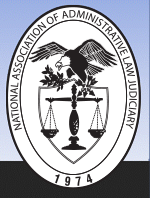First Page
59
Last Page
84
Abstract
Many public utility commissions were originally created to regulate railroad companies. However, during the transition to the modern era their reach was greatly expanded to encompass the host of now regulated public industries. In more recent times, the role of the public utility commission has further expanded beyond regulation of specific industries to become tools to implement various policy goals and attitudes towards respective industries. Part II of this paper will seek to address different issues that may be encountered by the modern public utility commission. Part III of this paper seeks to present the concept of incentive regulation, which beyond its common support in economic theory, also has a basis in moral theory. Lastly, Part IV seeks to analyze incentive regulation applied to the California Public Utilities Commission (CPUC). The purpose of the analysis is both to prescribe the applicability of incentive regulation, and also assign potential challenges with this approach. Part IV ends with a discussion of unique challenges the CPUC faces with incentive regulation.
Recommended Citation
E. Nathan Cheung,
Considerations for Closing the Moral and Legal Gap in Public Utility Regulation,
40 J. Nat’l Ass’n Admin. L. Judiciary
59
(2020)
Available at:
https://digitalcommons.pepperdine.edu/naalj/vol40/iss1/3

